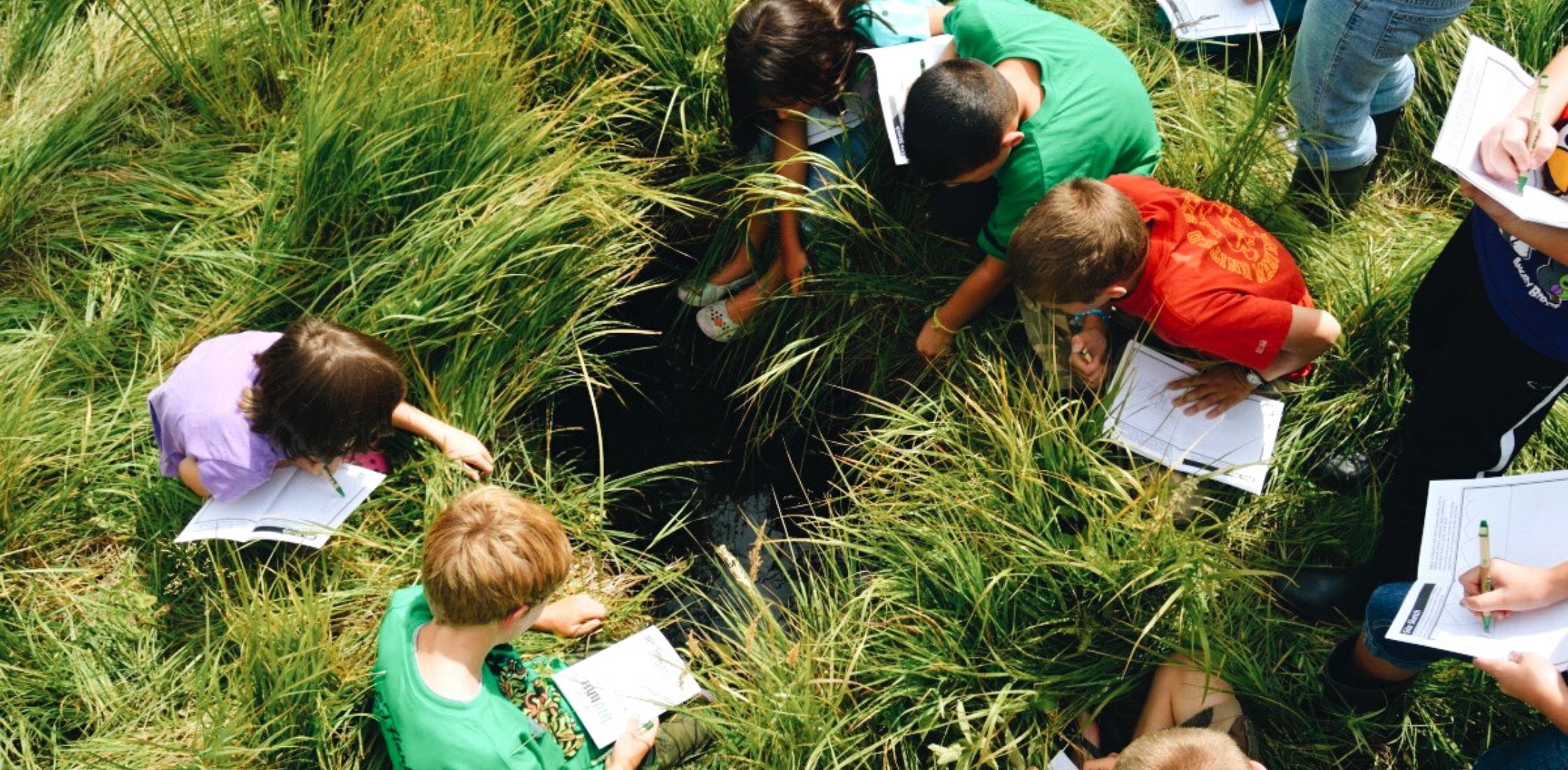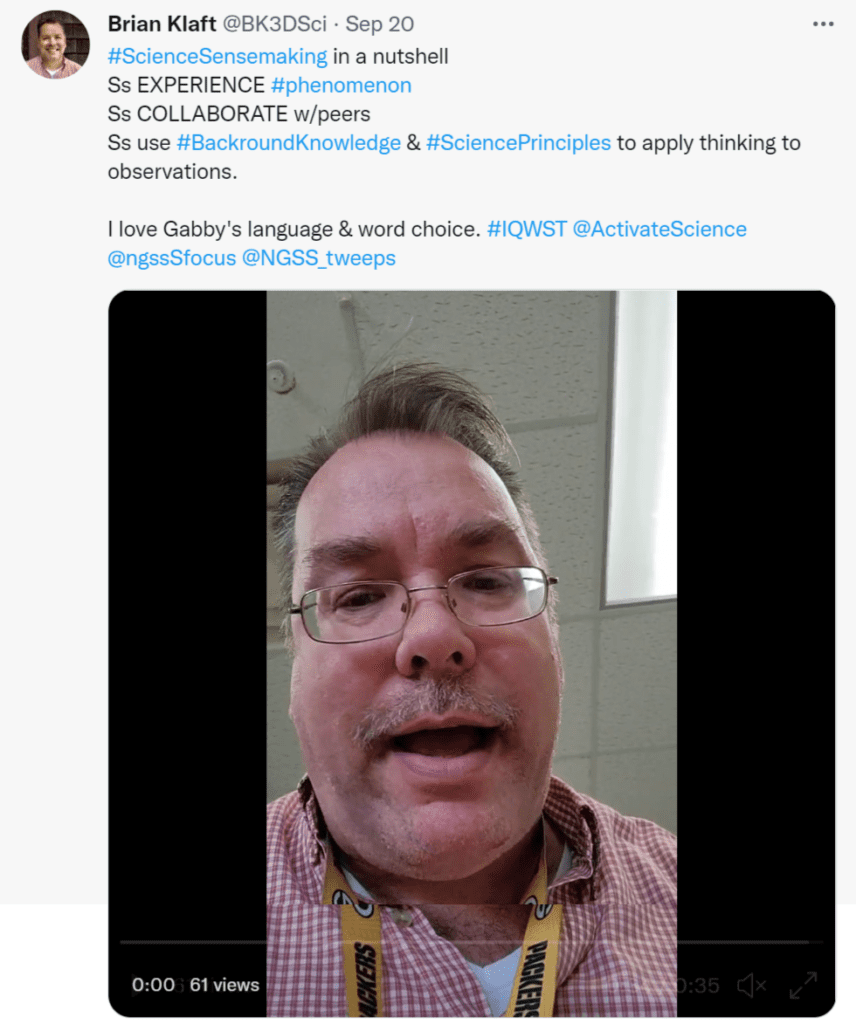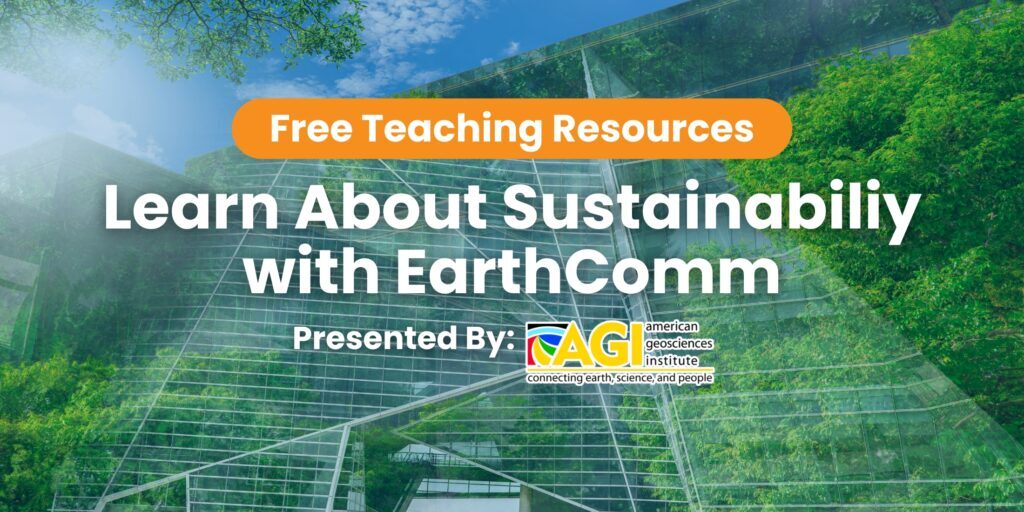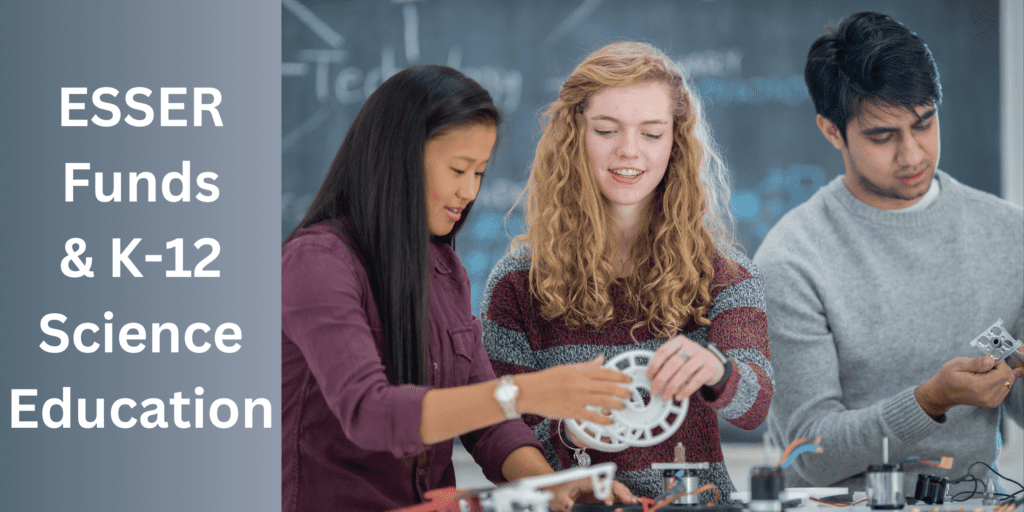Assessing Student Learning in STEM: Engaging Teachers, Students, and Parents

How are districts assessing student learning in STEM?
Quick Take: This blog post explores the traditional student assessments districts employ to assess student learning in STEM, and the new shift toward multidisciplinary and multidimensional science assessments aligned with NGSS.
'I just don't understand why my students did so poorly on this benchmark exam, guys. I posted the learning goal every single day.' - Tweet (Sept. 15)
The above tweet, posted by a public school teacher at the start of the 2022/2023 school year, quickly went viral on Twitter - triggering thousands of retweets and hundreds of comments from teachers lamenting the problems with standardized tests and the eternal struggle to adequately assess students to improve learning outcomes.
It's no wonder the tweet resonated so much. As teachers and students embark on a challenging, post-pandemic school year unlike any other, the question of how to assess students (in an increasingly complicated, hybrid learning environment) takes on new meaning and a heightened sense of urgency.
Research studies published throughout the pandemic assessing student development during lockdowns have provided alarming evidence that the pandemic caused significant learning loss in students of all ages (Test Score Patterns Across Three COVID-19 Impacted School Years).
Even students were aware of the extreme decline in their learning during the pandemic. In a blog post earlier this year (Why STEM Students Want Deeper Learning Now and How Teachers Can Help Them Achieve It), we highlighted new research where 85% of students surveyed reported that the pandemic had a negative impact on their academic growth.
But, while the news about significant learning loss shook the world, the latest research assessing student learning in the aftermath of the pandemic (as they return to school and some semblance of normalcy) offers glimmers of hope and good news. Not only have students been able to significantly recover learning loss, but some schools have also exceeded expectations by reaching pre-pandemic learning levels in some grades (The State of Student Learning in 2022 by Curriculum Associates).
Disrupting Traditional Student Assessments in STEM
Recovering learning loss and preparing students for STEM careers of the future are of the utmost importance in education. And assessing student development has never been more complicated, or more consequential, than it is right now.
The pandemic has shown educators and parents that new tools and new ways of thinking about how students learn and are assessed are needed. And while this shift began happening long before COVID-19, the pandemic has accelerated the shedding of old methods of assessing students and has given educators the permission to embrace new, more innovative ways of managing assessments in class, online, and even in the Metaverse.
Standardized testing, for example, is not only falling out of favor in the education community, but the pandemic (when testing was temporarily halted) caused many school leaders, teachers, and parents to rebuke standardized testing altogether (It looks like the beginning of the end of America's obsession with student standardized tests).
While standardized testing will most certainly continue to be used as a valuable tool for student development, in a letter to educators on the publication of the National Assessment of Educational Progress report, Miguel Cardona (U.S. Secretary of Education) gave teachers a firm directive on how to use testing data more constructively post-pandemic:
"The purpose of this letter is to remind all who report and interpret student outcomes this year that assessment data has always been meant to be used constructively-to help inform parents and families about their students' schools and to ensure schools receive the necessary resources to help support students. Further, this letter is intended to support our communities in countering efforts to misuse these results by applying them punitively." Miguel Cardona (Letter to Educators, September 2022)
Cardona also emphasized the need for more nuanced, holistic student assessments that incorporates high-quality instruction, evidence-based strategies, and student mental health.
Educators and parents are also questioning the effectiveness of giving students excessive homework. In the Math Education subReddit, one teacher bravely shared that she no longer checks homework assignments.

Much like the viral tweet at the top of this post, this teacher's expression of frustration with traditional assessment tools sparked dozens of comments and lively debate.


The math teachers in the subReddit discussion, might be surprised to learn that new research shows significant bias and inequalities in the homework review process:
"In the schools we observed, teachers interpreted homework inequalities through what social scientists call the myth of meritocracy. The myth suggests that all students in the U.S. have the same opportunities to succeed in school and that any differences in students' outcomes are the result of different levels of effort. Teachers in our study said things that are in line with this belief." -- 'There's only so far I can take them': Why teachers give up on struggling students who don't do their homework (September 2022)
As traditional ways of assessing student learning are called into question, and ultimately dissolve away, the obvious question is: What will replace traditional student assessments?
The Light at the End of the Tunnel for Assessing Student Learning in STEM
Successful student assessment begins with engaged, deeper learning.
Gone are the days of students having to memorize static data for grueling tests that do little to show the real impact and effectiveness of their learning.
Today, more value is being placed on a student's ability to think outside the box, question the information they've been given, and come up with new and innovative ideas and solutions. STEM careers of today (particularly those in emerging science industries) place creative problem-solving and critical thinking skills as a top priority in talent acquisition above and beyond technical skills. But how can science teachers effectively assess students for these crucial soft skills?
Start with the Next Generation Science Standards (NGSS) as a foundation for delivering engaging learning to students.
For the past decade, NGSS has given schools a powerful set of tools for bringing deeper learning and innovative assessments to all students. By using high-quality instructional materials that are aligned with NGSS (like our PRIME K-5 and EarthComm curriculums), teachers can implement learning and assessments that are multidisciplinary and multidimensional!
The NGSS are based on three core dimensions (3D Learning) used to help students acquire a cohesive, meaningful understanding of science and the world around them including:
- Crosscutting Concepts: Helps students explore connections across the four domains of science, including Physical Science, Life Science, Earth and Space Science, and Engineering Design.
- Science and Engineering Practices: Describes what scientists do to investigate the natural world and what engineers do to design and build systems. The practices better explain and extend what is meant by "inquiry" in science and the range of cognitive, social, and physical practices that it requires.
- Disciplinary Core Ideas: Key ideas in science that have broad importance within or across multiple science or engineering disciplines. These core ideas build on each other as students progress through grade levels
With a three-dimensional approach to science education, teachers are empowered to design learning experiences in the classroom (whether virtual or in person) that take into consideration the true creativity and thinking skills of the whole student. Students learn how to question phenomena, gather data, deliberate with classmates, and present findings like real scientists. The result is a deeply engaging learning experience that provides teachers with a more nuanced, accurate and insightful assessment of the student's true development.
In the tweet below, middle school science teacher, Brian Klaft, shares how (using NGSS-aligned curriculum, IQWST) his students were able explain science phenomena like science rock stars.
Making NGSS-aligned assessments simple and engaging for both teachers and students in a digital platform for hybrid learning is crucial. How does quality assessment in an engaging digital platform look? Here's a brief walk-thru of assessments in the Activate Learning Digital Platform.
Including Parents In Assessments
With Fall Parent/Teacher Conferences weeks away, it goes without saying that parents will likely be more concerned about the development of their children this school year than ever before. And parents are getting a lot of support to help them participate more in student learning.
New Transparency bills sprouting up across will, if passed, require schools to show parents more of their curriculums with the goal of parents having more decisive input into what their children are learning. And, last month, the US Department of Education awarded $7 million to eight organizations to highlight parent voices and support families informing student development and academic recovery.
High-quality, NGSS-aligned curriculum helps teachers to substantively include parents in the student learning journey. Middle-school science teacher, William Bauer, shared on Twitter how he uses OpenSciEd (an open source, NGSS-aligned curriculum) to engage parents and the broader community in student learning and assessment including sharing resources for parents and the video replay of a webinar he hosted.
School districts can also provide parents with tools to help them understand and engage in assessing students like Michigan's Department of Education which published a guide for parents What Parents Should Know About Assessments.
The Future of STEM Assessments Is Here!
The challenges ahead for educators to help students to continue recovering learning loss and prepare them for the STEM careers of the future may seem challenging but students and teachers alike have proven that they are resilient, more than up to the task, and ready to embrace innovative ideas and tools to help propel them forward!
To learn more about assessing students with NGSS-aligned curriculum, contact us using the form below and one of our curriculum specialists we'll be happy to help you!
* * * * *



![Science Communication Skills for Students Blog Header [PHOTO: 6 TH grade students ask thoughtful questions, create a Driving Question Board, and explore how their
questions are related to each other (OpenSciEd). CREDIT: @gretchenmilary / X]](https://activatelearning.com/wp-content/uploads/bb-plugin/cache/Science-Communication-Skills-for-Students-Blog-Header-1024x512-panorama-7ba441d2933aba80528e5c1e91e256c0-.png)

